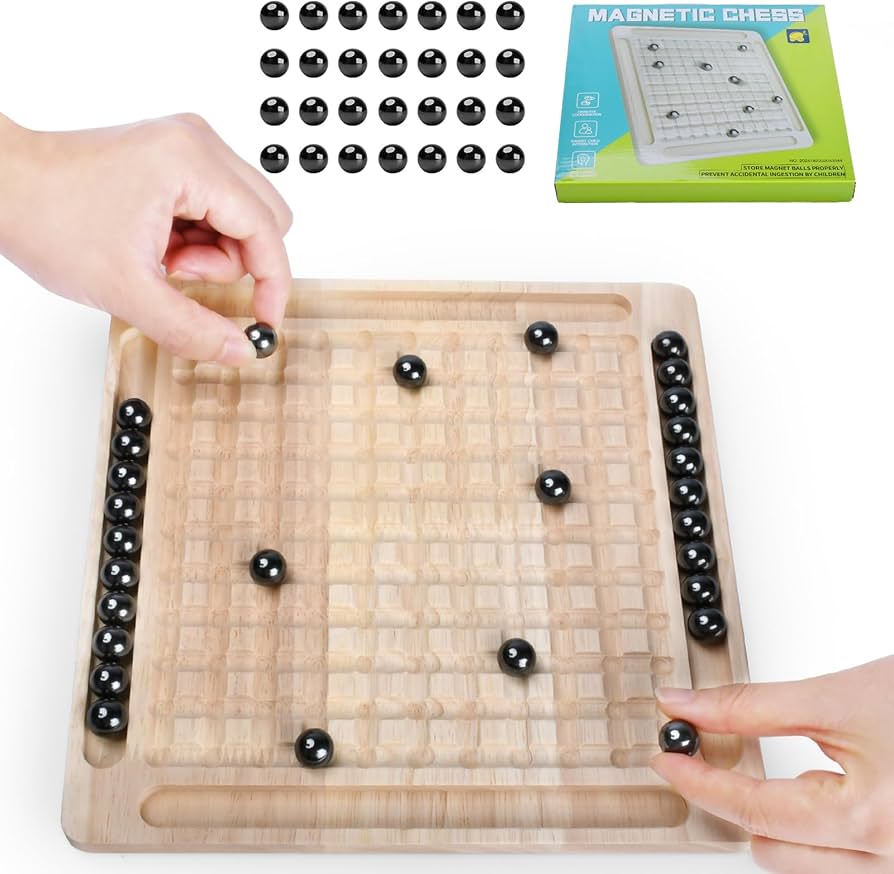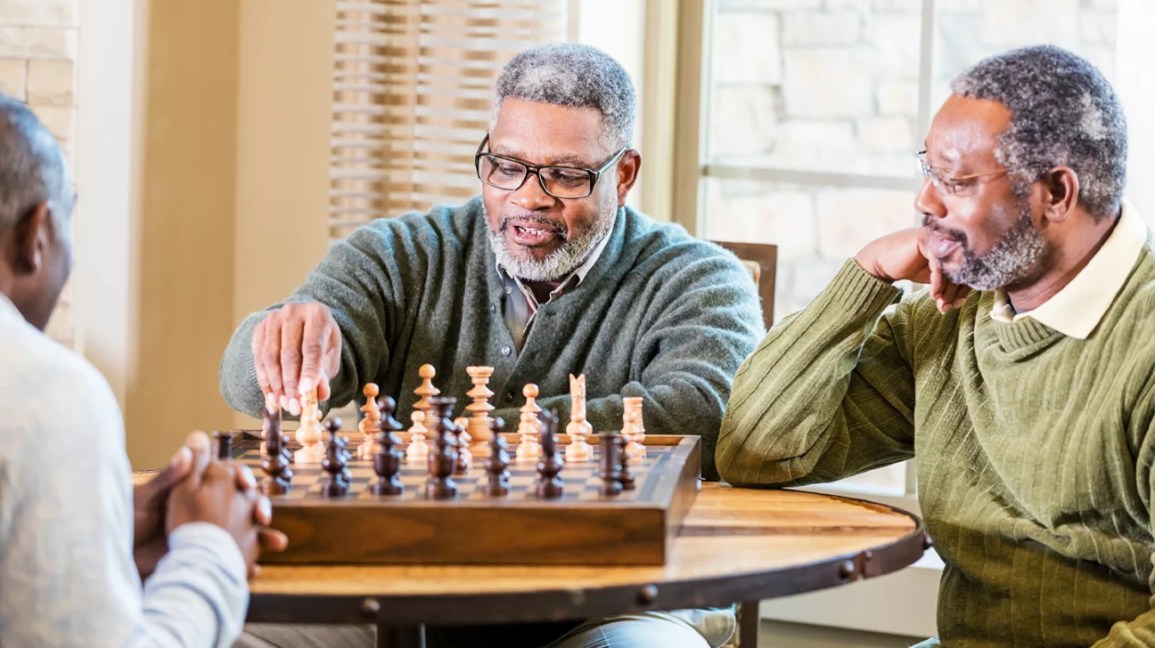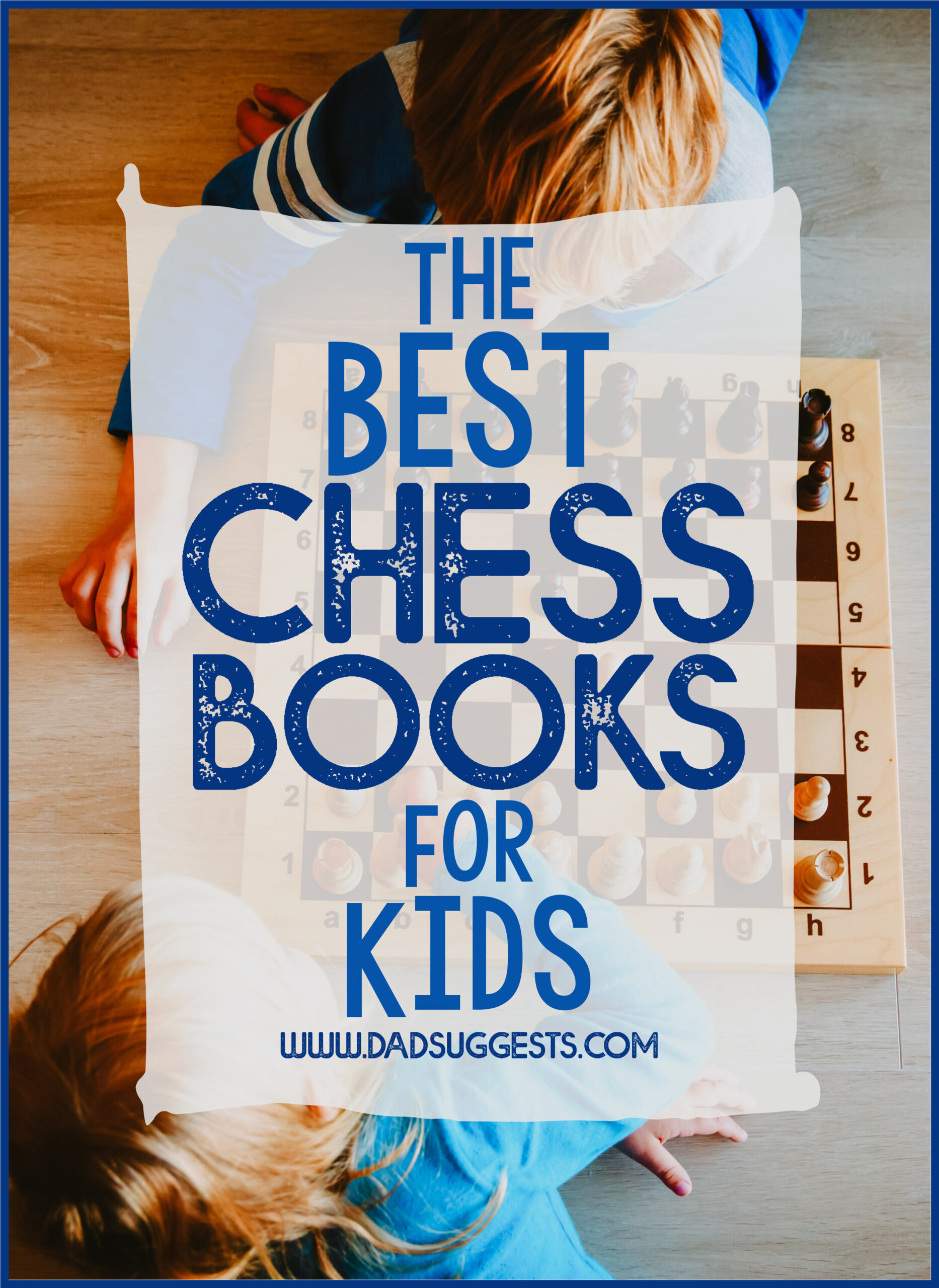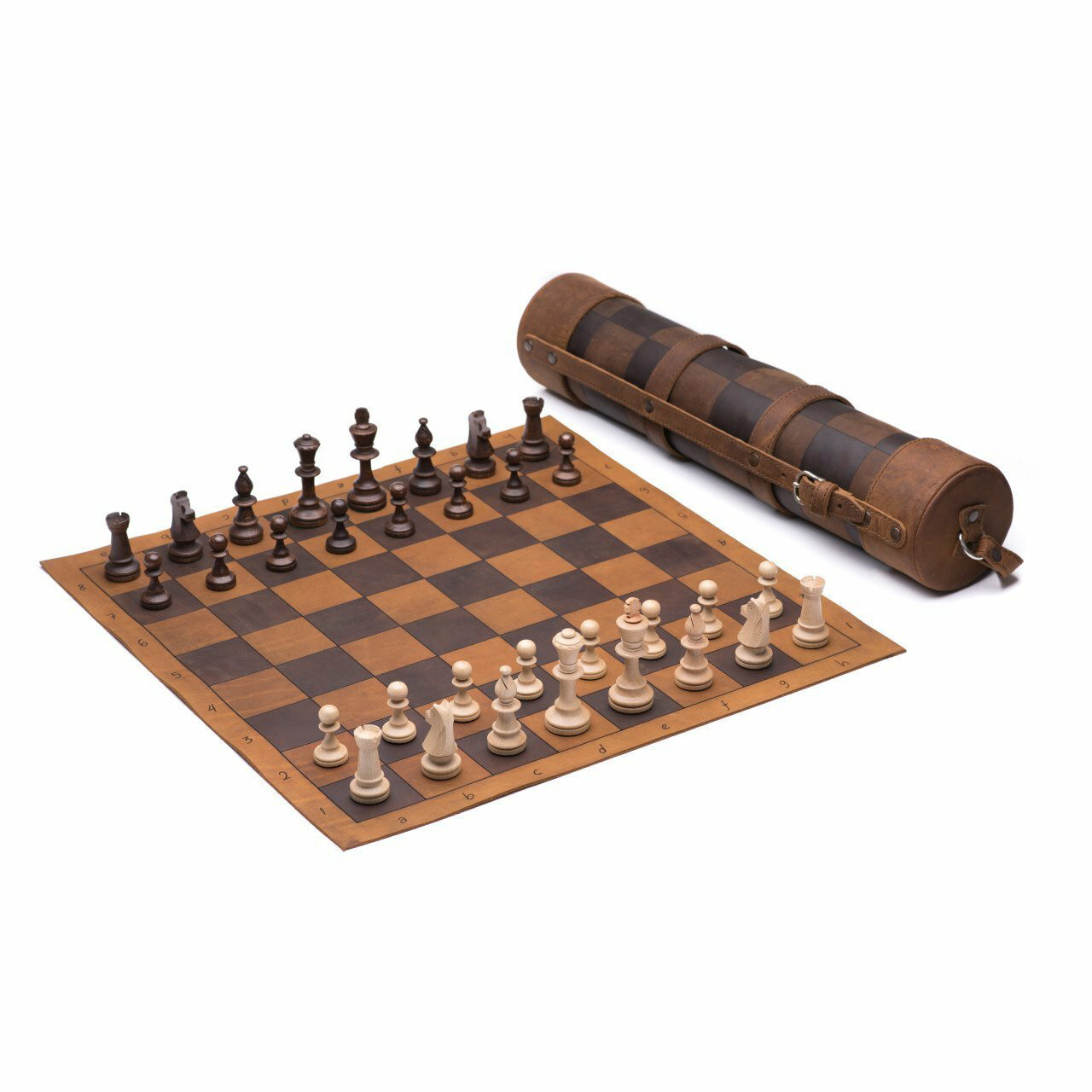Chess is a game of strategy and skill. For intermediate players, finding the right book can make all the difference in improving their game.
If you’re stuck between beginner lessons and advanced tactics, the right chess book can guide you. Intermediate players need resources that challenge their current understanding while pushing them to the next level. A great book can offer new strategies, deeper insights, and improve your overall gameplay.
In this blog, we will explore some of the best chess books specifically tailored for intermediate players. These selections promise to enhance your skills, broaden your knowledge, and provide you with the tools needed to compete at a higher level. So, get ready to turn the pages and elevate your chess game!
Introduction To Intermediate Chess
Stepping into the world of intermediate chess can be daunting. At this level, you need more than basic tactics and openings. Intermediate players must think strategically and anticipate their opponent’s moves. This is where chess books come into play. They offer valuable insights and strategies to improve your game.
Why Read Chess Books?
Reading chess books can boost your understanding of the game. They provide knowledge that online tutorials may not cover. Books often include detailed explanations of various strategies and tactics. This can help you understand the deeper aspects of chess. They can also help you learn from the experiences of grandmasters.
Books can offer different perspectives on the same concept. This allows you to see the game from multiple angles. Chess books are also portable. You can read them anywhere, anytime. This makes it easy to study even when you are away from your board.
Benefits Of Studying Chess
Studying chess offers many benefits. It improves your concentration and critical thinking skills. As you study, you learn to anticipate your opponent’s moves. This develops your strategic planning abilities. It also enhances your patience and perseverance. Chess requires you to think several moves ahead. This skill can be valuable in everyday life.
Chess books can help you understand complex strategies. They break down difficult concepts into simpler terms. This makes it easier for you to grasp advanced techniques. Studying chess also increases your knowledge of the game. You learn about famous matches and historical games. This can inspire you and give you new ideas to try.
Essential Chess Tactics
Chess tactics are the maneuvers that can make or break your game. For intermediate players, understanding these tactics is crucial. It can be the difference between a win and a loss. Essential chess tactics help you recognize patterns and make better decisions during play. Let’s explore some of the best books on this topic.
Popular Books On Tactics
“Winning Chess Tactics” by Yasser Seirawan is a favorite among many. It provides clear explanations and practical examples. Each chapter ends with exercises to test your understanding. “The Complete Chess Workout” by Richard Palliser is another excellent choice. This book offers puzzles that challenge your tactical thinking. It is perfect for players who want to improve their tactical vision.
“Chess Tactics for Champions” by Susan Polgar is highly recommended. It covers a wide range of tactics. The book is easy to understand and includes many practice problems. “The Art of Attack in Chess” by Vladimir Vukovic is a classic. It focuses on attacking strategies and tactical themes. This book is essential for players looking to sharpen their offensive skills.
Improving Your Tactical Skills
Regular practice is key to improving your tactical skills. Solve puzzles daily to keep your mind sharp. Analyze games and identify tactical patterns. Online platforms offer many resources for practice. Use them to your advantage.
Studying master games can also help. Pay attention to their tactical decisions. Try to understand the reasoning behind their moves. Books with annotated games are valuable for this purpose.
Joining a chess club can provide practical experience. Playing against different opponents will expose you to various tactics. Discussing games with others can offer new insights. Practice, study, and play. This trio will enhance your tactical prowess.
Advanced Opening Strategies
Intermediate chess players often seek to improve their opening strategies. Mastering the initial moves can set the stage for the entire game. This section explores some of the best books on advanced opening strategies. These books provide detailed insights and tactics. Let’s dive into the top resources available for enhancing your opening repertoire.
Top Books On Openings
There are numerous books dedicated to chess openings. Here are some of the top recommendations for intermediate players:
| Book Title | Author | Description |
|---|---|---|
| “Fundamental Chess Openings” | Paul van der Sterren | This book covers a variety of openings in detail. It is suitable for players who want a comprehensive understanding. |
| “Modern Chess Openings” | Nick de Firmian | A classic resource that has been updated. It offers a wide range of opening strategies. |
| “Winning Chess Openings” | Yasser Seirawan | This book provides practical advice and tips. It is ideal for players aiming to improve their opening game. |
Mastering Opening Moves
Mastering the first few moves can give you a significant advantage. Here are some tips from the top books on how to master opening moves:
- Understand the principles: Focus on control of the center, development of pieces, and king safety.
- Memorize key lines: Familiarize yourself with common opening lines and their variations.
- Practice regularly: Repetition is key to mastering opening moves. Play through various scenarios.
Each of these books provides exercises and examples. They help to reinforce these principles and tactics. By consistently applying these strategies, you can improve your performance in the opening phase.
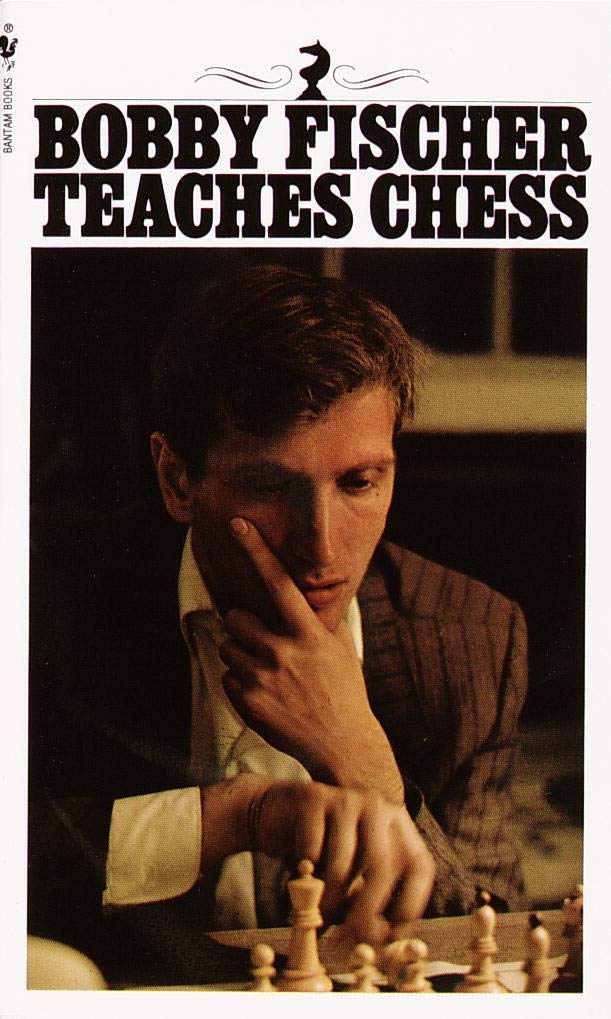
Credit: www.chess.com
Midgame Mastery
The midgame is a crucial phase in chess. Mastering it can significantly improve your game. In this section, we’ll explore books that focus on midgame mastery. These books help intermediate players understand key concepts and strategies.
Recommended Midgame Books
Choosing the right book can make learning easier. Here are some top picks:
- “My System” by Aron Nimzowitsch – This classic covers positional play and key principles.
- “How to Reassess Your Chess” by Jeremy Silman – Focuses on imbalances and dynamic play.
- “The Middlegame” by Max Euwe and Hans Kramer – Offers deep insights into different positions.
Key Midgame Concepts
Understanding certain concepts is vital for midgame success. Here are some key ideas:
- Piece Activity – Active pieces can control key squares and create threats.
- King Safety – Keeping your king safe is crucial. Avoid exposing it.
- Pawn Structure – Pawns determine the game’s character. Manage them well.
These concepts help in building a strong foundation. Mastering these will improve your midgame strategies.
Endgame Techniques
The endgame is a crucial phase in chess. Many games are decided during this stage. Intermediate players often struggle with endgame techniques. Improving endgame skills can significantly boost overall performance. This section covers essential resources and lessons for mastering endgames.
Best Endgame Books
Books are a great way to learn endgame techniques. Here are some of the best books for intermediate players:
| Title | Author | Description |
|---|---|---|
| Silman’s Complete Endgame Course | Jeremy Silman | Progressive lessons tailored to different skill levels. |
| Endgame Strategy | Mikhail Shereshevsky | Focuses on practical endgame techniques and strategies. |
| Chess Endings: Essential Knowledge | Yuri Averbakh | Basic to advanced concepts explained in simple terms. |
Crucial Endgame Lessons
Learning the right endgame techniques is vital. Here are some crucial lessons:
- King Activity – The king becomes a powerful piece in the endgame.
- Pawn Structure – Understand the importance of pawn structure.
- Opposition and Zugzwang – Master these key concepts for gaining an advantage.
- Basic Checkmates – Learn essential checkmating patterns.
- Rook Endgames – Focus on common rook endgame scenarios.
These lessons help in recognizing and exploiting endgame opportunities. Consistent practice of these concepts builds confidence and competence.
Famous Chess Players’ Insights
Learning from famous chess players can be eye-opening. Their experiences and strategies provide invaluable lessons for intermediate players. This section explores books written by grandmasters and what you can learn from their expertise.
Books By Grandmasters
Grandmasters have spent years honing their skills. Their books are treasure troves of knowledge and can significantly improve your game.
- My System by Aron Nimzowitsch: This classic covers positional play and is essential for any serious player.
- Think Like a Grandmaster by Alexander Kotov: Offers insights into decision-making processes during a game.
- Endgame Strategy by Mikhail Shereshevsky: Focuses on the crucial endgame phase, often neglected by players.
Learning From The Best
By studying the games and thoughts of top players, you can gain a deeper understanding of chess strategies.
| Book | Author | Main Focus |
|---|---|---|
| Life and Games of Mikhail Tal | Mikhail Tal | Attacking Play |
| My 60 Memorable Games | Bobby Fischer | Game Analysis |
| Fire on Board | Alexei Shirov | Complex Tactics |
These books offer deep insights into different aspects of the game. By understanding their strategies, you can enhance your own play style.
Chess Puzzles And Exercises
Chess puzzles and exercises play a crucial role in improving your chess skills. They help you recognize patterns and develop your tactical abilities. For intermediate players, solving puzzles is especially beneficial as it sharpens your mind and enhances your problem-solving skills. This section will guide you through some of the best puzzle books and the benefits of solving them regularly.
Puzzle Books To Challenge You
Many books are available that offer a variety of chess puzzles. These books are designed to challenge your skills and take your game to the next level. One popular book is “Chess Tactics for Champions” by Susan Polgar. It includes puzzles that range from simple to complex, catering to intermediate players. Another great option is “1001 Chess Exercises for Club Players” by Frank Erwich. This book provides a wide array of puzzles that focus on various tactical themes.
“Chess Training Pocket Book” by Lev Alburt is also highly recommended. It features 300 key positions that every chess player should know. These puzzles are designed to improve your tactical vision and calculation skills. Lastly, “The Ultimate Chess Puzzle Book” by John Emms offers a collection of over 1,000 puzzles. It is perfect for those who want to challenge themselves and improve their tactical awareness.
Benefits Of Solving Puzzles
Solving chess puzzles regularly has many benefits. It enhances your pattern recognition, making it easier to spot tactical opportunities during a game. Puzzles also help you develop better calculation skills. You learn to think several moves ahead and anticipate your opponent’s responses.
Another benefit is improved concentration. Solving puzzles requires you to focus deeply, which helps you maintain concentration during actual games. Puzzles also boost your confidence. As you solve more puzzles, you become more confident in your ability to find tactical solutions in real games. Finally, puzzles make learning chess fun and engaging. They add variety to your training routine and keep you motivated to improve.

Credit: www.youtube.com
Improving Chess Psychology
Improving your chess psychology can be a game-changer for intermediate players. Strong mental skills often separate good players from great ones. Mastering chess psychology involves understanding your mindset, staying focused, and maintaining confidence during games. Let’s explore some of the best books that can help you in these areas.
Books On Chess Mindset
Books on chess mindset can guide you through the mental aspects of chess. They help you understand the importance of a positive and focused mind. “The Art of Learning” by Josh Waitzkin is a great start. Waitzkin shares his journey and how he developed his mental toughness. “Thinking Inside the Box” by Jacob Aagaard offers deep insights into the thought process of a chess player. It teaches you to think critically and stay calm under pressure.
Staying Focused And Confident
Staying focused and confident during a game is crucial. “The Inner Game of Chess” by Andrew Soltis is an excellent resource. Soltis explains how to keep your mind sharp throughout the game. He provides techniques for staying focused and not getting distracted. “Chess for Tigers” by Simon Webb is another helpful book. Webb teaches you how to handle stress and stay confident, even when the game gets tough.
Credit: www.reddit.com
Conclusion
Choosing the right chess books can elevate your skills. Intermediate players need clear guidance. The books listed offer valuable strategies and insights. Each book targets different aspects of the game. Regular practice with these resources will enhance your understanding. Progress steadily and enjoy the journey of chess improvement.
Explore, read, and apply the knowledge. Your chess skills will grow over time. Stay dedicated and keep learning. Happy reading and playing!

